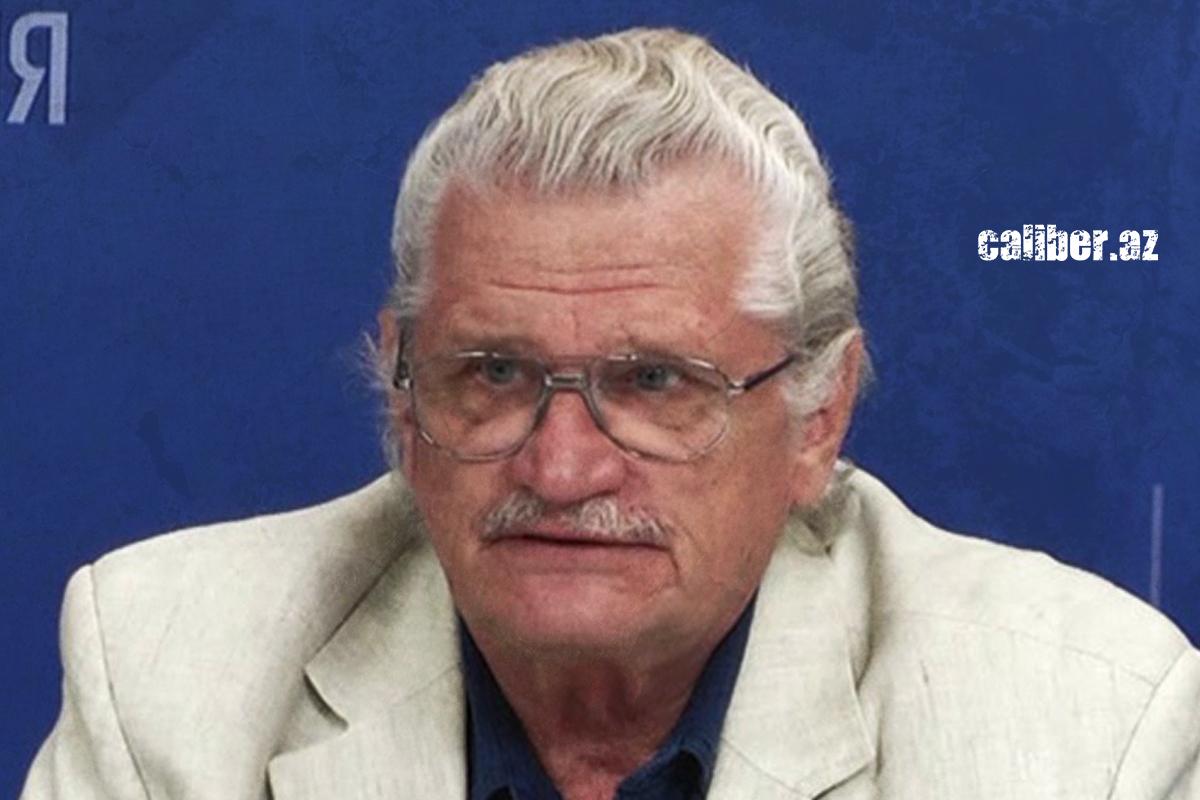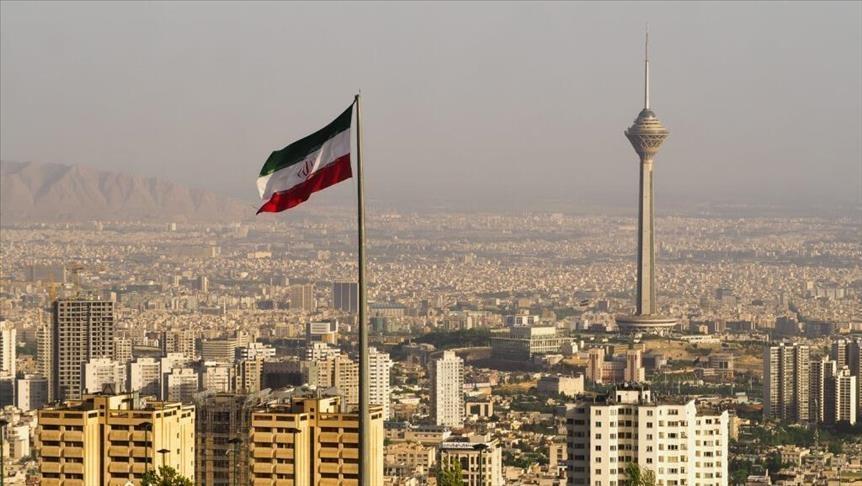Food riots in Iran: What and who stands behind them?
Professor Sazhin explains for Caliber.Az
ANALYTICS 18 May 2022 - 10:14
| Matanat Nasibova Caliber.Az |
Protests swept across Iran last week in response to a sharp increase in food prices. As usual, they were brutally suppressed by security forces using tear gas, and participants in public discontent were arrested.
Since early 2022, this is not the first wave of socio-economic protests in Iran. However, unlike the previous ones, the current protests in Iran are also caused by the reduction of state subsidies for wheat imports. As a result, prices for flour and flour products have increased by 300 per cent. According to the Iranian media, prices have increased significantly, including for dairy products and vegetable oils. Such a sharp increase in prices for products of strategic importance is observed in Iran for the first time, and in the entire history of the country, being under the most severe Western sanctions. Even under the yoke of Western sanctions, food inflation in Iran did not reach the price mark of 300 per cent. The fact that high inflation in Iran could provoke the Ukrainian crisis, as a result of which the well-established chain of import-export economic operations was disrupted for years, was expected. As well as the fact that many countries with which Ukraine has established trade and economic relations may face a similar problem in the future.
The fact that the political crisis generates a complex of socio-economic and humanitarian problems and vice versa is a natural process. But in the case of Iran, the expert community also does not exclude the influence of external forces interested in the economic situation's deterioration.
The well-known Russian expert, the Iran specialist, the senior researcher at the Institute of Oriental Studies of the Russian Academy of Sciences, Professor Vladimir Sazhin, shared his opinion with Caliber.Az about how such assumptions correspond to reality, and in general about the causes of the protests and their possible consequences in the Islamic Republic of Iran.

Causes and effects
According to Sazhin, the main reason for the protests in Iran was a significant increase in prices for products of strategic importance due to a reduction in government subsidies.
"I believe that the current protests in Iran are of an economic nature, and do not have political overtones. Protests in Iran take place periodically, and most of them are internal in nature, are not associated with any external factors. Dissatisfaction with the government's economic policy is growing in Iran. This trend is cumulative. I don't think that the protests in Iran are somehow connected with foreign multinational companies' interference in this process. Iran is under Western sanctions and all issues with multinational companies have been resolved.
Undoubtedly, the situation in Ukraine affects the world food market, primarily grain, so there is no denying that to a certain extent the suspension of grain purchases by Tehran from Ukraine could not but affect the Iranian consumer market. However, I would not give a political colour to the processes taking place inside Iran. The economic crisis in Iran has been going on for quite a long time, and to a certain extent Iranians have adjusted to these conditions, and the Iranian economy has adapted to financial and economic difficulties. During the Iran-Iraq war, a card system was introduced in Iran, it was called a coupon system and extended to basic foodstuffs. Recently, government subsidies for basic foodstuffs have significantly decreased, which has led to an increase in inflation. A couple of years ago, the Iranian government repeatedly resorted to the same system due to the rise in fuel and gasoline prices, but this again led to street protests.
On the other hand, the current situation in the country is aggravated, among other things, by the depreciation of the Iranian currency - the rial - against the dollar. This shows that the government does not have enough finances to implement various state programs. There are very few budget funds in Iran, and this is also one of the important reasons for the current low standard of living in the country. The government is forced to introduce a coupon, card system, including a system of subsidies, so that the population does not fall into absolute poverty," the expert added.
Is a coup d'état real?
"In all likelihood, the current food crisis in Iran will not lead to radical measures - a coup d'état or regime change. This has also been shown over the past 10 years, during which protests have repeatedly taken place in Iran, with loud slogans of discontent. However, all these protests did not lead to the government overthrow. Iran's repressive and punitive bodies have a long experience in dealing with protests, so I do not see any serious grounds for a power, change," Sazhin said.

A ray of hope in the face of sanctions…
"Due to the economic sanctions of the West, half of the country's 84 million population live below the poverty line. Moreover, the impact of sanctions is also felt by the well-to-do segments of the population, the standard of living of the population is deteriorating, which leads to discontent among the masses. In recent years, oil production has increased in Iran, which cannot be realized due to Western sanctions. However, given the interest of Europeans and Americans in Iranian oil, the lifting of Western sanctions against Iran now suits both the United States and Europe. Of course, this arrangement does not suit everyone, and first of all Israel, with which Tehran's relations remain extremely tense to this day because of the Iranian nuclear program.
So the partial lifting or even easing of Western sanctions against Iran is fraught with a number of difficulties. Nevertheless, I do not rule out that this issue may find a solution in the foreseeable future," the orientalist went on to say.
And what about the JCPOA?
"Negotiations in Vienna on the restoration and reanimation of the nuclear deal (JCPOA - Joint Comprehensive Plan of Action) have stalled so far. After refusing to comply with the JCPOA requirements, Tehran has significantly increased its nuclear potential. If Iran could not use modern, efficient centrifuges to enrich uranium, then since 2019 there has been a significant shift in the nuclear sphere, and as a result, the country is already able to enrich uranium up to 20 and even up to 60 per cent. Given the fact that the level of uranium enrichment for the creation of nuclear weapons is up to 90 per cent, then we get a very small technological step from 60 to 90 per cent. Accordingly, Tehran has already connected the latest centrifuges to the enrichment process.
I think it is possible that Tehran and Washington will gradually return to the JCPOA on the terms of partial lifting of Western sanctions and simultaneous return of Iran to the nuclear deal. On the other hand, it is unlikely that Iran will become the owner of nuclear weapons in the next 10 years. But the fact that it will be able to achieve the conditions for the creation of nuclear weapons is quite likely," Sazhin concluded.
Caliber.Az
|
1
|
High time to declare US ambassador persona non grata Mr. Libby, take your suitcase and leave for Washington
05 May 2024 - 12:06
|
|
2
|
Sports & Lake Urmia as tools in fighting for Azerbaijani national identity in Iran Identity struggles: Sports & environment
07 May 2024 - 16:46
|
|
3
|
West destabilising situation in Georgia Security, impunity for (foreign) agents
05 May 2024 - 17:28
|
|
4
|
Double standards and Michel's confession Europe's hypocrisy
05 May 2024 - 11:18
|
|
5
|
Armenian priests peddling false narratives Unmasking revanchist rhetoric
05 May 2024 - 14:57
|
Germany sends two warships to Indo-Pacific amid China and Taiwan tensions
08 May 2024 - 01:20
US says Israel committed to reopening Kerem Shalom crossing on May 8
07 May 2024 - 23:23
NATO special rep meets Armenian diplomat to mull cooperation & regional dynamics
07 May 2024 - 21:31
Baku hosts 7th high-level working group meeting on Caspian Sea issues
PHOTO07 May 2024 - 21:10
Uzbek president to pay working visit to Moscow on May 8-9
07 May 2024 - 20:59
US FAA opens probe into Boeing 787 inspections
07 May 2024 - 20:47
Iraqi Kurdistan not to be a center to threaten Iran security
07 May 2024 - 20:32
FIFA president invited to COP29
PHOTO07 May 2024 - 20:25
Pakistani delegation visits Azerbaijan National Defence University
PHOTO07 May 2024 - 20:14
Azerbaijan chairs BSEC meeting on tourism cooperation, focuses on regional development
07 May 2024 - 20:07
Azerbaijani migration service detains 785 foreigners in crackdown on illegal migration
07 May 2024 - 19:53
Gunfire breaks out on Kyrgyz-Tajik border
07 May 2024 - 19:35
Azerbaijani PM visits monument to national leader Heydar Aliyev in Ankara
PHOTO07 May 2024 - 19:25
Guterres urges Israel, Hamas "to show political courage" and secure ceasefire
07 May 2024 - 19:17
Israeli forces conclude operation in Tulkarem
VIDEO07 May 2024 - 18:50
Slovak premier wraps up visit to Azerbaijan
07 May 2024 - 18:38
Belarus conducts tactical nuclear inspection together with Russia
07 May 2024 - 18:26
Poland calls on EU to build joint air-defence system
07 May 2024 - 18:14
French MFA summons Russian ambassador over misuse of diplomatic channels
07 May 2024 - 18:02
Prime Minister Ali Asadov visits Anitkabir mausoleum in Ankara
PHOTO07 May 2024 - 17:59
Ukraine exposes network of Russian agents plotting assassination of president Zelenskyy
PHOTO07 May 2024 - 17:50
Russia reserves right to target British military sites
MFA spox warns07 May 2024 - 17:39
Armenian PM alleges Catholicos leads political movement
Favoring ex-president Kocharyan's interests07 May 2024 - 17:27
President Aliyev holds expanded meeting with Slovak PM
PHOTO07 May 2024 - 17:15
Armenia's Pashinyan affirms commitment to peace talks despite mediator ineffectiveness
07 May 2024 - 17:03
Will foreign troops save Ukraine?
Breaking through07 May 2024 - 17:00
Putin formally takes office as Russian president for six-year term
07 May 2024 - 16:52
Sports & Lake Urmia as tools in fighting for Azerbaijani national identity in Iran
Identity struggles: Sports & environment07 May 2024 - 16:46
Argentina welcomes Baku-Yerevan delimitation process
07 May 2024 - 16:40
Bulgarian President Rumen Radev arrives in Azerbaijan for official visit
07 May 2024 - 16:30
Armenian Church's political aggression threatens regional peace
Caliber.Az on YouTube07 May 2024 - 16:28
Azerbaijan, Russia focus on climate finance
07 May 2024 - 16:25
Armenian PM, Russian president to discuss diverse agenda in upcoming meeting
07 May 2024 - 16:16
Georgian Parliament to consider law on foreign agents in final reading
07 May 2024 - 16:04
Сan Middle East knot be cut?
Israeli analyst weighs in07 May 2024 - 15:53
Turkish-Iraqi relations forge new paths with “Road to Development” initiative
Shaping Middle East landscape07 May 2024 - 15:40
Limited Israeli operation in Rafah aims to keep pressure on Hamas to agree deal
Sources tell CNN07 May 2024 - 15:28
Slovak PM: Azerbaijan is exemplary in terms of sovereignty
07 May 2024 - 15:16
Pashinyan supports proposal to sign peace treaty with Baku by November
07 May 2024 - 15:14
Armenian PM accuses former security chief of collaborating with foreign press service
07 May 2024 - 15:04
